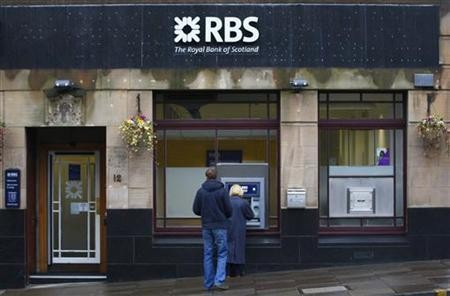Osborne: Taxpayers Not Responsible for Libor Fine on RBS by US
Collective settlement with UK and US authorities to be announced next week

Chancellor of the Exchequer George Osborne has said that the fines likely to be imposed on the Royal Bank of Scotland by US authorities over the London Interbank Offered Rate scandal should be met by the bankers not taxpayers.
The bank is expected to receive a fine between £400m ($628m, €460m) and £500m from US and UK authorities for its attempts to rig the Libor and other benchmark rates. Libor tracks the average rate at which major international banks based in London lend money to each other.
The collective settlement between the US Department of Justice, US Commodity Futures Trading Commission and the UK Financial Services Authority (FSA) is in its final stages and the punishment details are due to be revealed next week, according to several media reports.
RBS is majority-owned by the government at present. Therefore, any fines imposed by the British authorities will result in the UK taxpayer paying the UK taxpayer.
Osborne's current statement indicates that the payment of fine to the US will not be in similar fashion and the bankers should find another solution to pay the fine.
Earlier, there were reports that RBS is reviewing a proposal to claw back up to £100m from payment given to executives in its investment bank in order to source money for the settlement.
The bank's remuneration committee is likely to pull back about 15 percent of prior-year pay awards to relevant individuals as it attempts to demonstrate that the bank's staff are being held sufficiently responsible for the scandal.
RBS may also deduct some amount from future bonus awards to executives.
With the settlement, RBS will be admitting that it played a major role in the widespread manipulation of the Libor and related rates, joining UBS and Barclays.
In June, Barclays agreed to pay $450m in connection with similar allegations, while UBS paid $1.5bn in December.
© Copyright IBTimes 2025. All rights reserved.






















